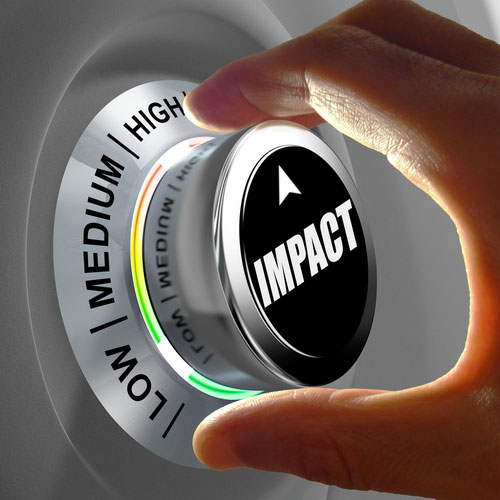The truth is, we’re often not truly aware of the contribution our daily actions have to the overall CO2 emissions. How much driving our cars or switching to LED lights affects global warming, leading to events such as permafrost melting or ocean acidification? For instance, committing to a one-year plant-based diet saves around 4x more GHG emissions per year compared to recycling. So on what should we focus our time, energy and money on if we’re looking to have a really positive impact and improve our planet’s environmental health?
How We’re Not Talking About The Most Sustainable Actions To Prevent Climate Change
Bamboo toothbrushes? Cool, and don’t get me wrong, it’s important. Shopping plastic-free items? It’s under the right path too. Buying good quality clothes that last? Smart. Using public transportation? Brilliant. Lights off and shorter showers? Definitely! But the point is – what has the strongest impact? What actions have the best return on investment, from a perspective where we invest time, energy and money in these behavioral changes that impact our wallets and our daily routines?
The fact is that school science textbooks and government resources in places like Canada, the US, the EU or Australia recommend and focus on low/medium-impact life-pattern changes as the best options not to contribute to climate change – a Lund/British Columbia University study concludes. After analyzing 39 peer-reviewed articles, government files, and carbon calculators, the authors state there’s a clear educational and communication gap to improve on – so that citizens are truly aware of what is the most clever thing to do.
Data That Matters For A Sustainable World
We can’t accomplish something if we’re unaware of what our goals are. Climate change is being caused especially by the extravagant release of greenhouse gases (GHG) our planet isn’t able to absorb. So here are some quick data for thought.
- 37,1bn tonnes of Co2 – the amount of GHG released in 2018
- 415,26 parts per million (ppm) – CO2 concentration in the atmosphere in 2018. The highest in recorded history. Ever
- The 4 greater carbon dioxide emitters are China (27% or 9.6GtCO2/year), the US (15%), EU28 (10%) and India (7%) –
- The highest CO2 emissions per capita are in the U.S.- 16.2tonnes CO2/person in 2017 (compared to 5,99 in the UK or 1,58 in India)
- The greatest share of global fossil CO2 emissions in 2017 came from coal (40%) followed by oil (35%)
- 25% of carbon emissions are used for heating and electricity
- 14% of carbon emissions come from transportation, 72% of which come from road transportation
- 2.1tCO2e/person by 2050 – global individual emissions per capita to keep Earth’s temperature below 2ºC
Let’s Improve Our Ecological Footprint And Be More Sustainable – Perfect. But How?
According to the Footprint Network, our ecological footprint accounts for the ecological assets that a given population requires to produce the natural resources it consumes (including plant-based food and fiber products, livestock and fish products, timber and other forest products, space for urban infrastructure) and to absorb its waste, especially carbon emissions.
So now that we know we should aim for a max. 2.1tCO2eq footprint to keep below 2ºC, it gets easier to move in the right direction. So our first advice is: check what your current footprint is using footprintcalculator. Then you’ll know exactly how much of a work in progress you are. Then regarding the adjustments you’ll likely need to make, Wynes and Nicholas’s study tells us some things worth knowing so that perhaps with a lower effort you can achieve more impactful results.
Looking Forward To Acting More Sustainably? Pick Your Ecological Battles Wisely

Wynes and Nicholas have identified in their study, among others, four actions that are able to drastically reduce someone’s individual greenhouse gas emissions, meaning they can save over 0.8tCOe (=5% of annual emissions of a US citizen). They start by saying having one fewer child is the best thing you can do, which brings ethical and parenting issues we have further addressed in our piece: Should We Stop Having Babies To Be Truly Sustainable And Save The Planet? Overall, doing so could save 58.6 tonnes of CO2-equivalent per year.
We could then live car-free and save around 2.4tonnes/CO2/ year (using a gasoline automobile baseline), which, according to the authors, represents all the emissions associated with the life cycle of owning a car. Here, we should also remember and consider that living car-free also decreases the need to build more parking spaces and roads with further environmental costs. It’d also favor a higher-density urban design in which the functioning of public transports can be improved, as there would be both more space/ less congestion and budget available. What about electric or hydrogen cars? They still bring ecological issues, so better to leave them out too.
Avoiding airplane travel comes third. Every time we don’t go on a transatlantic flight, let’s say from London to Boston, we keep around 1.6 tCO2e away from our ecological footprint. Sure these values aren’t precise as they depend on the exact distance traveled, the weight of passengers and their luggage, the occupancy of the plane or the wind speed. Still, a value slightly larger or small is it’s very impactful when framed within the 2.1t/CO2 we should aim for individually. Almost as impactful is buying green energy if you’re living in a country still with a carbon-based electricity grid.
- Related:
Acting More Sustainable – Sometimes It’s Ok To Break The Rules

What else is more impactful? The authors speak about buying a more efficient car, followed by switching from an electric car to living car-free and eating a plant-based diet. Afterward come the moderate impact actions, like replacing gasoline with hybrid, washing clothes in cold water, recycling or hanging clothes dry.
The main point of this study was to show that recommendations from education and government papers in developed countries don’t always focus on high-impact actions – pointing out a gap between the most impact actions to take to fight climate change and the ones who are more trendy and often recommended. For instance, Wynes and Nicholas criticize the fact that despite some high-impact actions might be politically unpopular, they still need to be presented, discussed and implemented if we’re to keep bellow the 2ºC temperature increase by the end of the century.
People need to now it’s good that they adopt reusable shopping bags but in case they forget about it once or twice it’s not that serious. Because doing so is estimated to save 5kg/CO2/year, which is less than 1% effective compared to a year without eating meat. And did you know that a plant-based diet can save up to 4 times more emissions than recycling or 8 times more than upgrading light bulbs? So if you want to do your part for a better plane and to inspire others to do the same, now you know which actions have the most impact.
Image credits to street on Shutterstock, flying on Shutterstock and impact on Shutterstock

